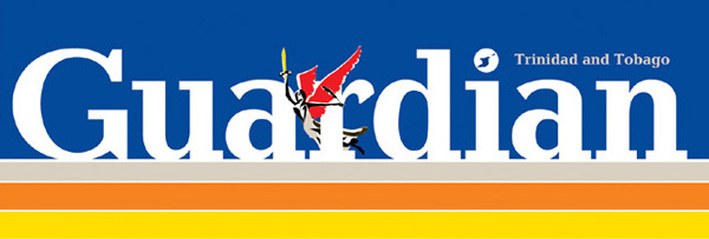A few weeks ago 11 women from the Highway Re-route Movement (HRM) staged a sit-down protest outside the entrance of the Office of the Prime Minister in St Clair. Eventually the women were asked to leave and protest elsewhere. One who ignored the request was forcibly removed by police officers.
Side stepping compulsory purchase orders or Government offers to buy the lands, one issue the protest publicised is the State’s bulldozing of private lands and buildings to construct the highway.
Now if we gauge public opinion toward the HRM via radio phone-ins and the comments on articles about the protests – not the most scientific method – a majority appear to be anti. As such the action of the police against HRM protestors both in Mon Desir and St Clair is deemed appropriate.
In support of such thinking we find a grandfather of sociology, Max Weber. For Weber we can define the modern State sociologically as the legitimate arbiter of physical force.
In other words the State is the only entity in our modern world that has the right to use violence. And of course as Weber points out its not really violence if the State uses it, its “force”. The police and army use force, those who aren’t use violence.
A second way to think about the State is as a collection of institutions. Nico Poulantzas and Louis Althusser broke the collection into two categories: ‘Ideological State Apparatuses’ and ‘Repressive State Apparatuses’. The former includes institutions like education, the churches, media, political parties, and cultural institutions. In the latter category are institutions like the police, army, prisons, civil service, and judiciary.
Sometimes people mistake Government and the State to be the same. But a Government is not the State. It is the group of persons, through a political party and alongside a financial elite, who get to control the State and decide who gets, what, when and where.
In ‘Politics as a Vocation’ Weber considers whether the politicians who make up a political party live off politics (they make a living from it) or live for politics (they do it for a cause).
In reality modern politicians live off politics and live for politics. If it were an either or situation we’d need an unlimited supply of people with the moral fortitude of Jesus, St Francis of Assisi or Mandela.
Perhaps over time politicians slip more into one camp over another? Weber would suggest corruption is built structurally into politics as a vocation because if one needs to make a living from politics, without an unrealistic moral code, one is already compromised. The system is set up that way.
One of Weber’s top students, a nefarious sociologist called Carl Schmitt built on this inherent failure at the heart of the political system. He defined the “political” as based on a “friend vs. enemy” distinction. Much like the Bush doctrine of “you’re either with us or against us”, or the local “now is our time”.
This conception of the political hinges on the idea of politics as antagonism. Schmitt notes the friend vs. enemy distinction derives from the religious wars and societies that preceded the modern State. Secular politics being the progeny of a religious world, Schmitt suggests that defending a way of life, one’s own, is what “politics” is about.
It’s the Hobbesian world where humans are inherently evil and combative. It also gives substance to political slogans like the Wars on Terror, Drugs, and Poverty. These are Wars because supposedly they threaten a way of life. This is the political shaping the social.
Now if we return to the HRM we can put these political sociology ideas in motion. In friend vs. enemy terms Dr Wayne Kublalsingh and the HRM are enemies of the State. Further, police violence against the HRM outside the PM’s office or on private lands in Mon Desir is a legitimate use of force because the HRM are against the State’s vision of “progress”.
Yet according to Weber the State is actually a group of politicians who form a Government and gain control over the State’s institutions. These politicians – and it goes for all politicians not just one party – both live off and for politics. As such their moral compasses can be wobbly.
In such a world can we confidently say the State, or any Government for that matter, knows best? When you think through the implications of such sociological definitions of politics, politicians. and the political it becomes pretty hard to say they do. And it leaves the suggestion, why doesn't the Government just abide by the independent Armstrong Report?
http://guardian.co.tt/columnist/2013-10-13/politics-politicians-and-political

 RSS Feed
RSS Feed